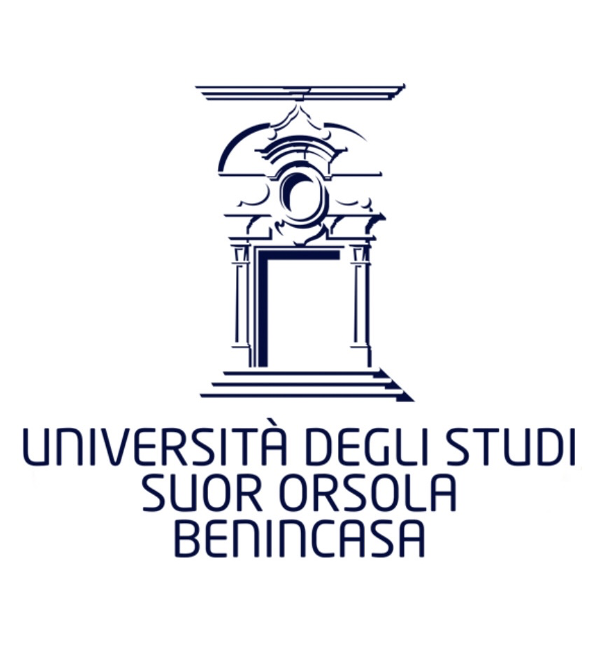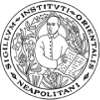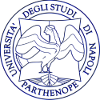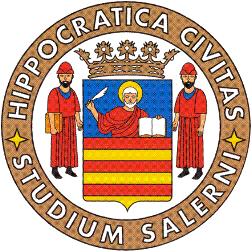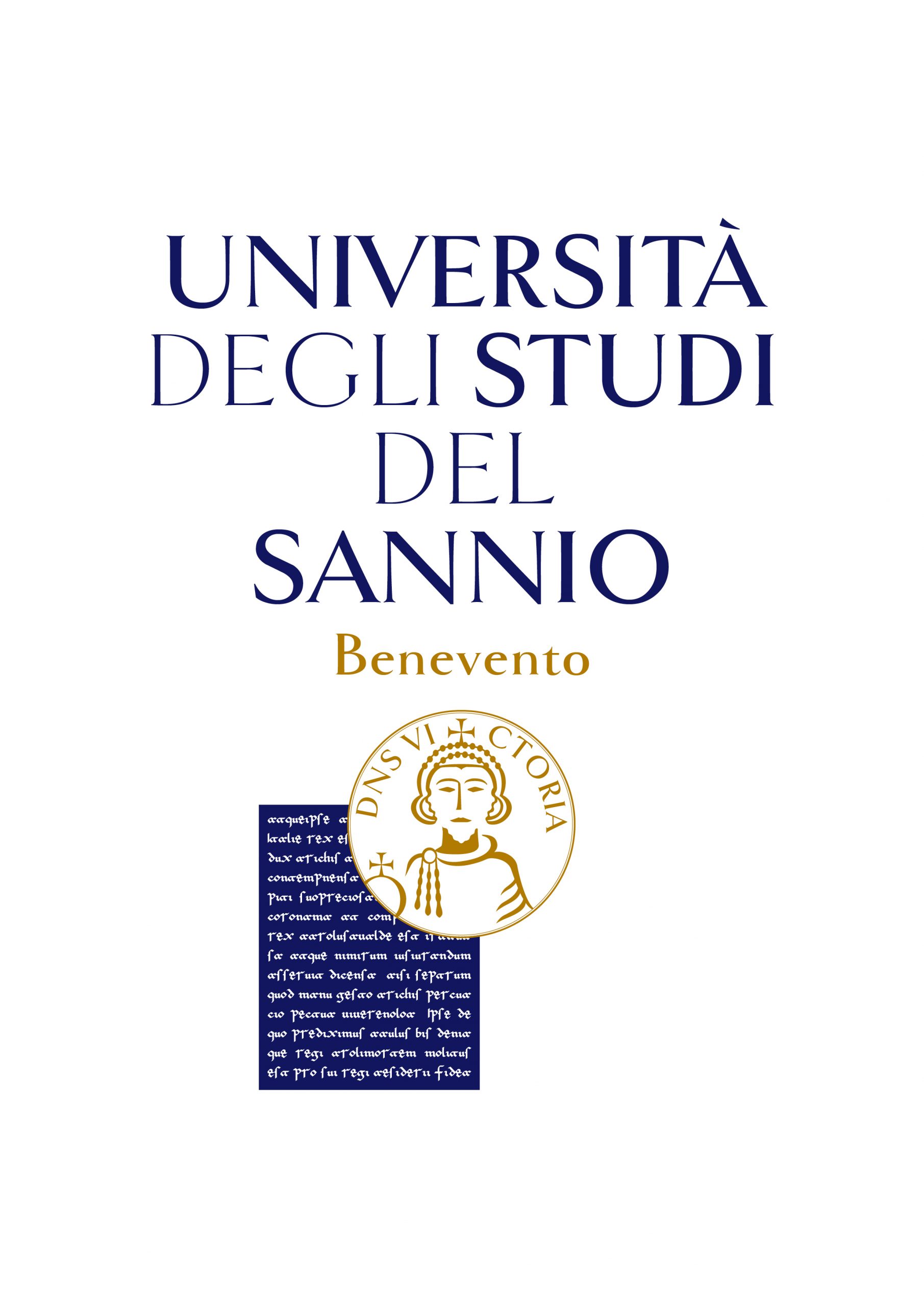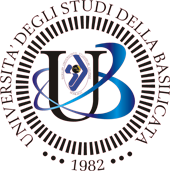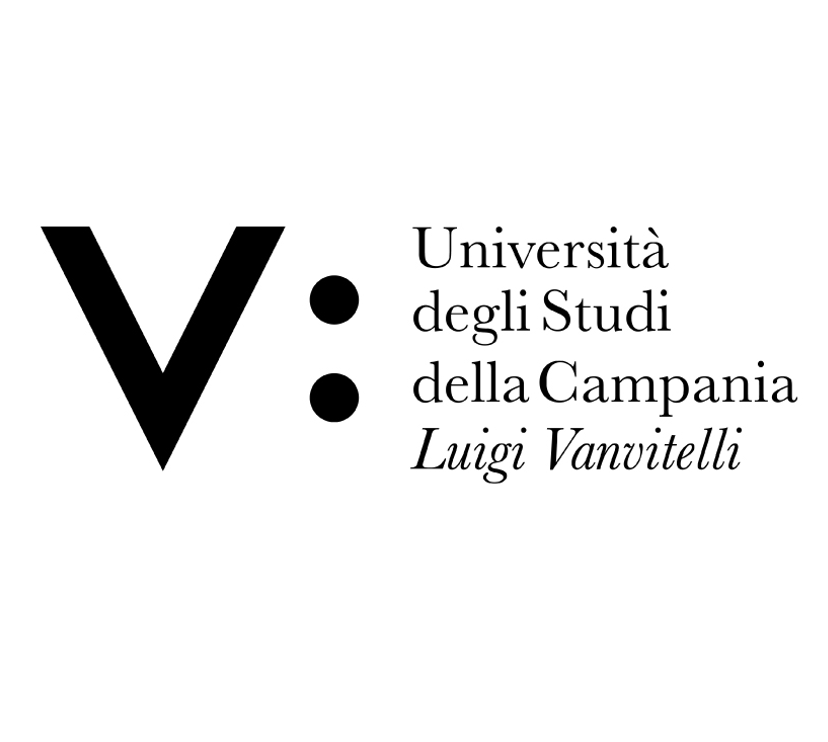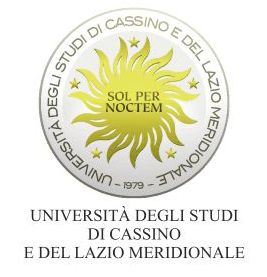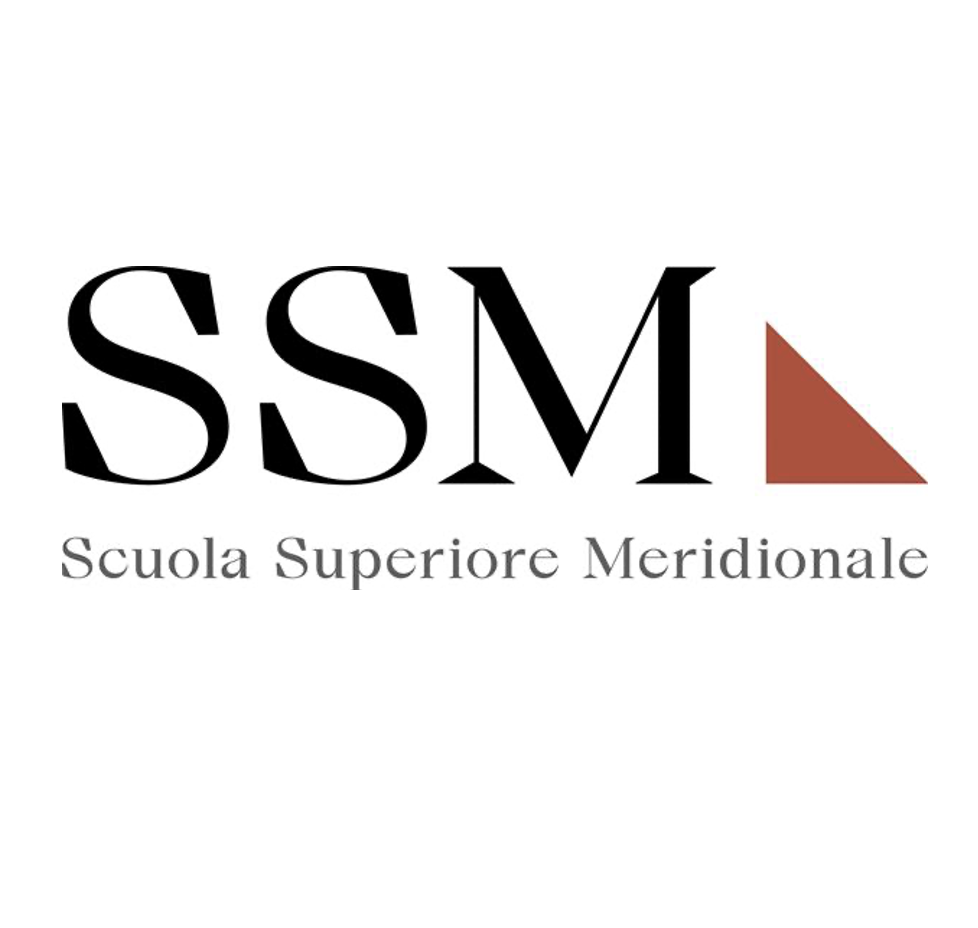Riviste
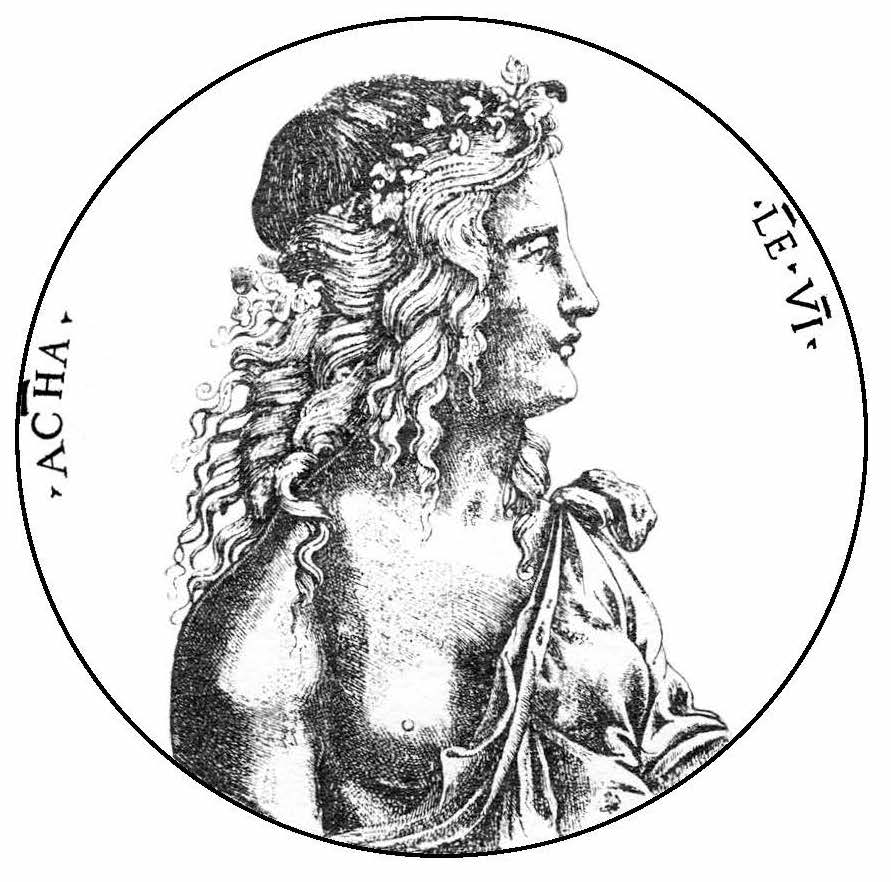
Achademia Leonardi Vinci
La nuova edizione della rivista«Achademia Leonardi Vinci», recuperando la lezione di Carlo Pedretti, vuole essere una ripresa aggiornata, che tuttavia riesca a mantenerne lo spirito e la finalità, continuando a proporsi quale strumento di studio e di ricerca. All’insegna dell’approccio multidisciplinare che si basa sul confronto, una pratica ora più che mai l’unico modus operandi per parlare di Leonardo, la rivista vuole essere un punto di incontro di studiosi di varie discipline, un luogo aperto che unisca risorse scientifiche e umanistiche. Particolare attenzione sarà dedicata alla carta, ai disegni, ai manoscritti e ai documenti.
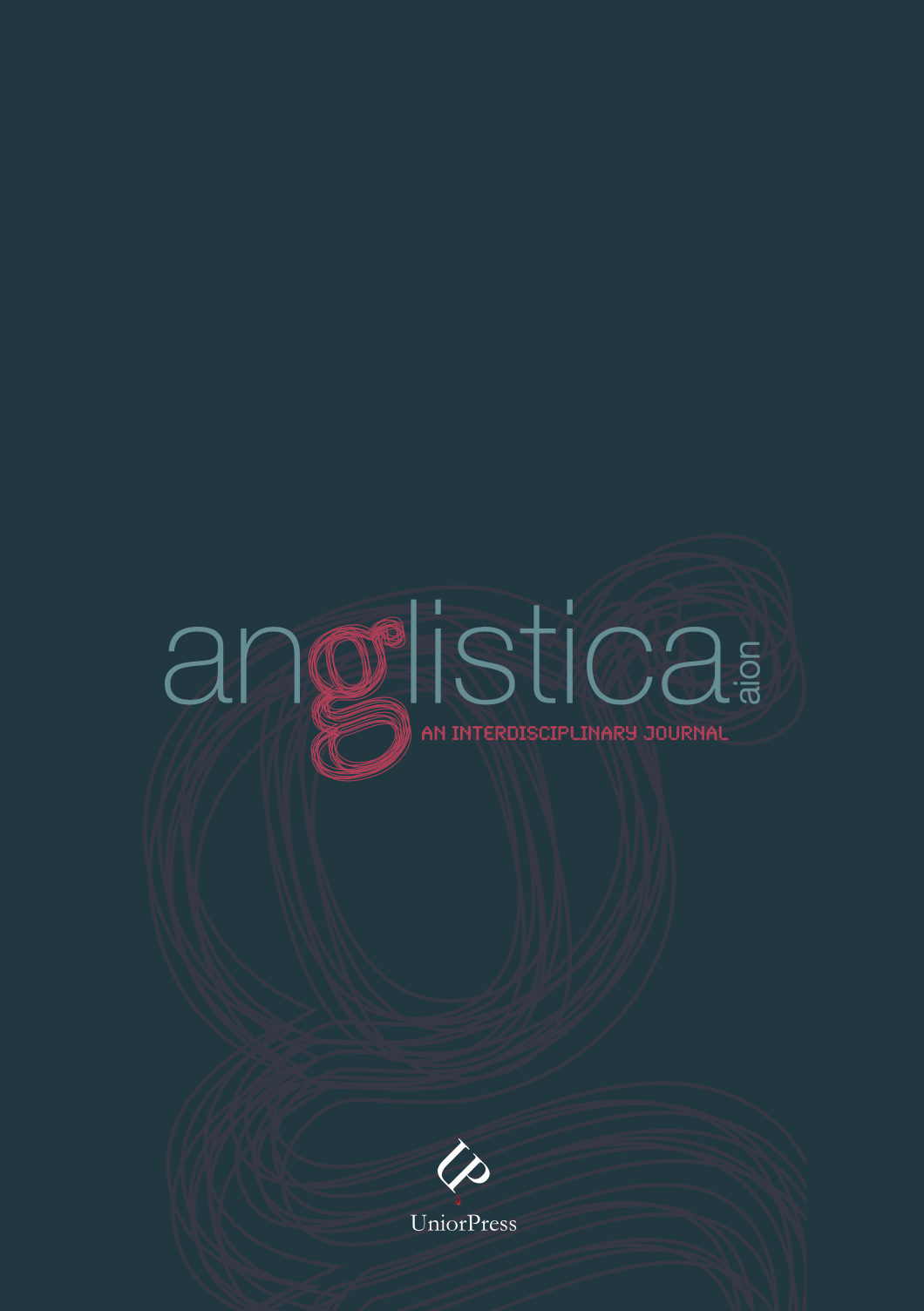
Anglistica AION: An Interdisciplinary Journal
For forty years now, Anglistica AION: An Intersciplinary Journal has been a leading publication in the field of English Studies. Due to the range and quality of ts coverage, it attracts contributions on the language, literature and culture of the contemporary English-speaking world.

ANNALI. SEZIONE GERMANICA. Rivista del Dipartimento di Studi Letterari, Linguistici e Comparati dell’Università degli studi di Napoli L’Orientale
«Annali. Sezione germanica» è un periodico annuale pubblicato dal Dipartimento di Studi Letterari, Linguistici e Comparati dell’Università di Napoli “L’Orientale”.
È dedicata a studi sulle lingue e letterature dell’area tedesca, nederlandese e scandinava, dall’età medioevale fino all’età contemporanea, come pure su problematiche culturali di rilievo relative a tali aree, nonché a studi sulle lingue e culture germaniche antiche.
Fondata nel 1958, nel corso degli anni Settanta ha dato luogo a tre diverse testate: «Studi Tedeschi», «Filologia Germanica», «Studi Nederlandesi/Studi Nordici», in seguito accorpate nella Nuova Serie, che è stata diretta prima da Luciano Zagari e successivamente da Giusi Zanasi.
La rivista è ora disponibile in open access sul portale SHARE Riviste. Con questo passaggio è stata rinnovata in modo radicale l’impostazione grafica, utilizzando anche un nome d’uso abbreviato: “germanica;” – più sintetico e al contempo quasi classico, nel suo riprendere il sostantivo neutro latino utilizzato per i concetti collettivi, nel senso dunque di ‘cose germaniche’. Esso riunisce così in sé i differenti campi di ricerca che trovano spazio nella rivista, sulla quale dal 1958 pubblichiamo saggi (talvolta raccolti in numeri monografici) e recensioni, in italiano e nelle principali lingue europee, su temi letterari, culturali, filologici e linguistici di area germanica, con un ampio spettro di prospettive metodologiche, anche di tipo comparatistico e interdisciplinare.
Insieme al nome sintetico è stato scelto scelto come nuovo simbolo il punto e virgola, per distinguere ma al tempo stesso collegare tra loro i vari ambiti disciplinari della germanistica. Un segno di punteggiatura sempre meno utilizzato e per questo forse un po’ desueto, ma che ci sembra acquisire una particolare potenzialità semantica: pur marcando uno stacco più forte, il punto e virgola connette parti indipendenti e le pone in dialogo – ha qualcosa di interlocutorio, nella consapevolezza che voler costruire un discorso fatto di punti fermi sia oggi più che mai illusorio.

Annali del Dipartimento di Studi Letterari, Linguistici e Comparati. Sezione linguistica
Annali del Dipartimento di Studi Letterari, Linguistici e Comparati. Sezione linguistica (ISSN 2281-6585), è una rivista scientifica internazionale, sottoposta a peer-review secondo la modalità del doppio cieco, pubblicata dall'Università degli studi di Napoli "L'Orientale".

Annali - Sezione Romanza
A partire dal 2015, ogni anno, uno dei fascicoli della Rivista è dedicato a una tematica inerente agli ambiti di ricerca dell’area romanza.
I numeri tematici in programmazione:
Numero tematico del 2020: “I mondi possibili tra fictio e letteratura”, a cura di Vincenzo Arsillo
Numero tematico del 2021: “Nouveaux paradigmes linguistiques dans la littérature belge francophone (de 1989 à aujourd’hui)”, a cura di Jana Altmanova, Maria Giovanna Petrillo e Christophe Meurée (scadenza per la presentazione delle proposte: 26 febbraio 2021; scadenza per la presentazione dei contributi: 30 settembre 2021- vedi call)

Archeologie tra Oriente e Occidente
Archeologie tra Oriente e Occidente (ISSN 2974-7651) è la rivista del Centro Interdipartimentale di Servizi di Archeologia dell'Università di Napoli L'Orientale. Il periodico offre uno spazio aperto di confronto in ambito archeologico su aspetti, tematiche, cambiamenti di approcci e metodi senza distinzione areale o cronologica. Archeologie tra Oriente e Occidente è volutamente declinata al plurale e con orizzonti geografici e culturali molto ampi per sottolineare non solo il carattere interdisciplinare che oramai ha assunto la ricerca archeologica, ma anche per stimolare una riflessione su settori ed approcci innovativi. L’idea che anima la nuova iniziativa editoriale è di ospitare approfondimenti tematici anche sperimentali e transdisciplinari nei quali possano convergere differenti metodologie di documentazione, rilevamento, gestione e interpretazione dei dati. La rivista contiene tre sezioni: Saggi, Scoperte e Recensioni: la prima è destinata ad accogliere saggi scientifici, senza limitazioni relative agli ambiti geografici, culturali e cronologici; la seconda resoconti sulle attività di scavo e studio; la terza, infine, riflessioni sulle novità editoriali.
Direttore - Andrea D'Andrea, Università di Napoli L'Orientale

BORNH Bulletin of Regional Natural History
SOCIETA' DEI NATURALISTI IN NAPOLI

Bulletin of Regional Natural History (BORNH), formerly Bollettino della Società dei Naturalisti in Napoli, is an Italian on-line journal that promote in-depth studies in Natural Sciences at local and regional scale, to create management tools and spatial planning for conservation of diversity, in connections with other geographical areas and archives of biodiversity.
BORNH seeks to publish of research articles, review articles, commentaries, check lists, technical papers on methodological innovations or improvements, as well as on the practical application of these resources towards the development of effective conservation policy and practice.
BORNH publishes local and regional territory studies in all branches of Natural Sciences dealing with diversity, ecology and evolution of ecosystem: zoology, geology, mineralogy, ecology, paleontology, botany, systematics and phylogenetics, terrestrial and aquatic ecology and behaviour, parasitology, palaeontology, geomorfology, developmental biology, conservation biology, chemistry, applied studies.
Incoming manuscripts are initially evaluated by the Editor in Chief. If the manuscript is acceptable as corresponding to the scope of the journal and representing a major contribution deserving publication in an international journal, it will be forwarded to reviewers for evaluation. After the approval of the final version by the editorial board, the manuscript will be accepted for publication.
The editor reserves the right to make editorial changes. Authors agree, with the acceptance of the manuscript, that the copyright is transferred to the publisher. Manuscripts, proofs, reviews and other correspondence concerning editorial matters should be addressed to the Editorial Office
Breve Storia della Società dei Naturalisti in Napoli
Nel 1881 la Facoltà di Scienze naturali, Chimica e Fisica dell’Università di Napoli contava soltanto 11 studenti. Si trattava però di ragazzi estremamente attivi e determinati, che si risolsero, su suggerimento ed aiuto di Salvatore Trinchese, loro professore di Anatomia Comparata, a fondare il Circolo degli Aspiranti Naturalisti. Il nome era un chiaro riferimento all’Accademia degli Aspiranti Naturalisti, fondata a Napoli nel 1841 da Oronzo Gabriele Costa, e poi sciolta nel 1849 per ragioni politiche. Il Circolo degli Aspiranti Naturalisti vide la sua nascita nei locali dell’Università di Napoli nel novembre del 1881, e gli undici studenti che coraggiosamente ne gettarono le fondamenta erano: Antonio Cabella, Alfonso Castriota Scanderberg, Tommaso Curatolo, Aurelio De Gasperis, Ludovico De Paola, Michele Geremicca, Giuseppe Jatta, Ugo Milone, Alfonso Montefusco, Pellegrino Severino ed Ulrico Siniscalchi. Il loro scopo era quello di superare le difficoltà in cui versava l’insegnamento delle Scienze Naturali. Le scarsità di strumenti scientifici nei laboratori, e di riviste scientifiche indispensabili per la loro preparazione culturale, unita all’inaccessibilità delle Accademie, allora esclusivi luoghi ai quali solo alcuni maestri potevano accedere, li spinsero ad organizzarsi: “riunirsi, manifestare le proprie idee con conversazioni critiche, tenere conferenze con dimostrazioni pratiche; raccogliere il frutto delle proprie ricerche, dei propri studi, dei vari convegni in un giornale che fosse la squilla della Nuova Italia risorta, ecco il nobile scopo, ecco la grande fatica degli undici giovani” (dalla relazione di Giuseppe Zirpolo sull’attività della Società nel 50° anniversario della Sua Fondazione. Bollettino della Società dei Naturalisti, 1932, vol. XLIV). Il nucleo fondatore del Circolo negli anni successivi cominciò ad svolgere una fruttuosa attività. Si aggiunsero nuovi soci, si stabilirono obiettivi da raggiungere, e nel 1885 nacque la Rivista Italiana di Scienze Naturali, con la prima nota a cura del professor Salvatore Trinchese, mentore della Rivista, come della Società nascente. Nel 1887 il Circolo si denominò Società dei Naturalisti in Napoli e anche il giornale cambiò nome, diventando il Bollettino della Società dei Naturalisti. In occasione del Cinquantenario della Società (1932) il vice segretario Arturo Palombi stimò che l’attività di ricerca del Bollettino avesse portato alla redazione di circa 900 lavori, in campi che spaziavano dalla fisica alla chimica ed alle numerose branche delle Scienze Naturali, con contributi di rilevanza internazionale. Il Bollettino sin dai suoi primi numeri veniva scambiato con le riviste edite dalle più importanti Accademie scientifiche del tempo, e questo contribuì da una lato ad una sua capillare diffusione su scala mondiale, e da un altro all’acquisizione di un elevato numero di periodici internazionali, che andarono a costituire il corpus fondamentale della biblioteca della Società dei Naturalisti. Per quanto riguarda le sede, la Società ebbe un periodo lungo di instabilità. Per circa trenta anni vennero messi a disposizione differenti locali nel centro storico della città, con continue peregrinazioni da un posto all’altro. Solo nel 1920 grazie all’attivo interessamento di alcuni dei soci, quali Maria Bakunin, Ferruccio Zambonini, Francesco Saverio Monticelli, il rettore dell’Università di Napoli professore Pasquale Del Pezzo concesse gli attuali locali di via Mezzocannone 8, che diventarono la sede definitiva della Società.

BDC. Bollettino Del Centro Calza Bini
La rivista BDC, ora espressione della ricerca scientifica del Centro Interdipartimentale di Ricerca in Urbanistica “Alberto Calza Bini”, esce in una nuova veste, in continuità con l'attività svolta a partire dal 2000. BDC promuove nuovi approcci, nuove proposte e nuovi strumenti per la realizzazione di strategie di rigenerazione urbana a scala umana in collaborazione con il laboratorio di ricerca Creative and Sustainable City (http://www.creativecitylab.org/). La città, sistema dinamico, complesso e adattivo, motore di sviluppo economico e culturale, ma anche contesto di profondi conflitti, rappresenta il campo di interesse, aperto a nuove sfide, in cui promuovere l'attuazione dei principi dell'economia circolare attraverso sinergie innovative, che combinino economia umana, rigenerazione del patrimonio culturale e creatività della comunità, avvalendosi delle valutazioni, quale supporto ai processi decisionali propri di una nuova good governance urbana.

Bollettino Filosofico
Il Bollettino Filosofico è una rivista fondata nel 1978 presso il Dipartimento di Filosofia dell’Università della Calabria, ora Dipartimento di studi umanistici. Rappresenta un forum teoretico e storiografico per gli studiosi italiani e stranieri impegnati nelle questioni più rilevanti della ricerca filosofica. Nel corso degli anni, il Bollettino Filosofico ha prestato, e presta, grande attenzione ai temi emergenti del dibattito filosofico contemporaneo, pubblicando saggi che esplorano numerosi territori tematici, quali l’ontologia e l’epistemologia, l’etica e le scienze sociali, l’estetica e il pensiero religioso, la fenomenologia e l’ermeneutica, il neo-idealismo tedesco e la filosofia italiana, il kantismo ed il marxismo, la storia del pensiero scientifico moderno e contemporaneo, la filosofia del linguaggio, la semiotica, la cultura e i linguaggi del cinema e dello spettacolo. La rivista pubblica saggi nelle seguenti lingue: Italiano, Inglese, Francese, Tedesco, Spagnolo. Dal 2013 è una rivista on line Open Access.
La rivista è in Fascia A Anvur dal 2016 per i settori concorsuali 11/C1, 11/C3, 11/C4 e 11/C5
Bollettino Filosofico è indicizzato da:
The Philosopher's Index
Google Scholar
Google Libri
EBSCO
DOAJ
ROAD
SCOPUS
Jurn EZB - Elektronische Zeitschriftenbibliotek
ESCI - Clarivate Analytics
Web of Science

Cesura - Rivista
CESURA - Rivista è espressione delle posizioni critiche e storiografiche del Centro Europeo di Studi su Umanesimo e Rinascimento Aragonese – CESURA, nella sua duplice configurazione di associazione e di centro interuniversitario internazionale. Riflette la vocazione all’interdisciplinarietà e all’integrazione di diverse discipline (in particolare letteratura, filologia, linguistica, storia, arte) dimostrata negli incontri seminariali degli ultimi anni: nel più alto sguardo prospettico che li ha caratterizzati, l’espressione letteraria, la testimonianza documentale, la rappresentazione artistica si sono sempre integrate e la dimensione artistico-culturale non si è mai separata da quella ideologica e dottrinale. La vocazione della rivista, dunque, è riprodurre sinteticamente l’intrinseca varietà e la coesa interazione dei modelli e delle attestazioni storico-culturali dell’Umanesimo e del Rinascimento che si generarono nel Regno dell’Italia meridionale e nella Corona d’Aragona.
CESURA - Rivista adotta rigorose procedure di pubblicazione e di verifica della qualità scientifica, con un verificabile sistema di revisione tra pari con doppia lettura anonima: l’articolo, reso anonimo, viene inviato a non meno di due lettori (referees) scelti tra i più noti specialisti internazionali della disciplina. Ogni articolo viene altresì letto rigorosamente a approvato scientificamente anche dai componenti del Comitato scientifico. Il nostro Codice etico è conforme alle COPE Best Practice Guidelines for Journal Editors. Per tutti i dettagli si rimanda alla pagina di Info.
E-ISSN: 2974-637X
CESURA - Rivista pubblica in open access ed è co-edita dal:
Centro Europeo di Studi su Umanesimo e Rinascimento Aragonese – CESURA
Via Cretaio 19
I - 80074 - Casamicciola Terme (NA)
e dalla:
Basilicata University Press - BUP
Università degli Studi della Basilicata
Biblioteca Centrale di Ateneo
Via Nazario Sauro 85
I - 85100 Potenza
con il supporto di SHARE Press.

Classiconorroena
CLASSICONORROENA è stata fondata nel 1990 per promuovere, incentivare e sostenere ricerche, studi ed incontri con lo scopo di evidenziare e illustrare i rapporti intercorsi, o anche postulati, o addirittura immaginati, tra la civiltà classica nel suo sviluppo e nella sua storia millenaria e le culture che si produssero nell’area germanica settentrionale. Per una localizzazione geografica determinata sono quindi da intendersi le regioni della Scandinavia, dell’Islanda, della Groenlandia e del Baltico.
Questa versione digitale prosegue l’attività dell’omonimo bollettino di studi, ricerche e recensioni della associazione.

Diritto Pubblico Europeo - Rassegna online
Diritto Pubblico Europeo – Rassegna online (DPERonline) è una rivista scientifica di Area 12, fondata da Raffaele Bifulco, Lorenzo Chieffi, Alberto Lucarelli e Andrea Patroni Griffi e consultabile all'indirizzo https://www.serena.unina.it/index.php/dperonline/, registrata presso il Tribunale di Napoli con ISSN 2421-0528, come periodico semestrale a carattere scientifico.
Obiettivi e ambiti scientifici della Rivista
La Rivista tratta i temi afferenti ai settori disciplinari riferiti all’Area 12, in particolare diritto pubblico e costituzionale, diritto dell’Unione europea, diritto comparato, diritto amministrativo e diritto dell’economia.
La linea editoriale della Rivista è ispirata al pluralismo e al confronto tra le diverse opinioni e opzioni metodologiche, culturali e scientifiche, nonché al dialogo tra la riflessione accademica e quella più operativa che viene svolta nel foro e nelle istituzioni pubbliche.
Le categorie del Diritto pubblico generale trovano punti di tensione e di non facile sistemazione alla luce del processo sovranazionale di integrazione europea e degli effetti che ne derivano. Si tratta di temi che i giuspubblicisti devono approfondire, offrendo il proprio contributo sia per una rilettura attenta delle categorie generali sia per l’analisi degli aspetti più particolari e di settore del diritto pubblico.
La Rivista ospita, sui temi della bioetica, una sezione curata dal Centro interuniversitario di ricerca bioetica - Cirb.
Criteri di valutazione
La Rivista sottopone i contributi destinati alla pubblicazione ad un procedimento di valutazione preventiva che garantisce l’obiettività e la ponderatezza del giudizio. A tal fine la Direzione, attraverso la propria organizzazione interna, potrà sottoporre i lavori ad uno o piú componenti del Comitato dei Revisori in ragione della competenza specifica richiesta.
La Rivista è tenuta a valutare i lavori per il loro contenuto scientifico, senza distinzioni di razza, sesso, orientamento sessuale, credo religioso, origine etnica, cittadinanza, nonché di orientamento scientifico, accademico o politico degli autori.
La revisione avviene tra pari con il sistema del doppio cieco, garantendo trasparenza, autonomia dei revisori e assenza di conflitti di interesse. Infatti, il referee riceve il contributo da valutare senza l’indicazione dell’autore, così come all’autore non viene comunicata l’identità del referee.
Il giudizio motivato potrà essere positivo; positivo con l’indicazione della necessità di apportare modifiche o aggiunte; negativo.
Esso sarà trasmesso alla Direzione e comunicato all’autore, sempre garantendo l’anonimato del referee. I contributi giudicati meritevoli dai referees possono essere oggetto di pubblicazione nella Rivista in base alla insindacabile valutazione della Direzione.
Qualora il referee esprima un giudizio positivo con riserva, la Direzione autorizza la pubblicazione soltanto a seguito dell’adeguamento del contributo.
Nell’ipotesi di valutazioni contrastanti sarà la Direzione a decidere circa la pubblicazione del lavoro. La Direzione può assumere la responsabilità – con le relative motivazioni – delle pubblicazioni di studi provenienti da Autorità istituzionali e/o da personalità di chiara fama, da autori stranieri di consolidata esperienza o da studiosi anche italiani di anzianità e prestigio tali che la presenza del loro contributo si possa reputare di per sé ragione di lustro per la Rivista.

Eikonocity. Storia e Iconografia delle Città e dei Siti Europei
CALL FOR PAPERS - EIKONOCITY 2 | 2025 | ISSN 2499-1422
Termine ultimo per l’invio delle proposte 15/3/2025
La rivista raccoglie studi e ricerche in materia di Iconografia e Cartografia storica urbana e Immagine del Paesaggio di ambito italiano ed europeo, promossi dal Centro Interdipartimentale di Ricerca sull’Iconografia della Città Europea dell’Università Fridericiana ed è anche organo dell’Associazione culturale Eikonocity. Tali studi rispettano le linee guida ministeriali per i diversi ambiti disciplinari che la rivista racchiude. Gli argomenti trattati si allineano con le direttive delle comunità scientifiche e delle pubbliche istituzioni in ambito nazionale e internazionale. La rivista è inclusa in DOAJ - Directory of Open Access Journals

Eracle. Journal of Sport and Social Sciences
Eracle. Journal of Sport and Social Sciences è una rivista scientifica che offre uno spazio di riflessione e confronto internazionale sui temi dello sport. In particolare, adottando una prospettiva multidisciplinare, la rivista vuole contribuire, attraverso adeguati approcci teorici e metodi empirici, ad alimentare il dibattito pubblico sulle differenti questioni che si legano ai fenomeni sportivi.
Misure antiplagio
Tutti gli articoli proposti a Eracle. Journal of Sport and Social Sciences sono sottoposti a un'attenta verifica volta a rilevare eventuali usi impropri di altri testi, anche ricorrendo a software antiplagio come Compilatio, Turnitin o iThenticate.
Quando è riscontrato un plagio si procede secondo quanto raccomandato nelle linee guida elaborate dal Committee on Publication Ethics (COPE) (http://publicationethics.org/resources/flowcharts).
Se invece fossero i lettori a segnalare un plagio presente in un articolo di Eracle. Journal of Sport and Social Sciences, i coordinatori:
1) informano chi ha segnalato l'abuso della procedura che sarà immediatamente avviata;
2) verificano il grado di effettiva coincidenza dell'articolo di Eracle. Journal of Sport and Social Sciences con il testo o i testi che sarebbero stati plagiati;
3) informano dell'accaduto l'intera redazione di Eracle. Journal of Sport and Social Sciences per decidere collegialmente i successivi passi;
4) trasmettono all'autore dell'articolo le evidenze emerse dal confronto con gli eventuali testi plagiati e gliene chiedono conto.
Se dovesse risultare che l'autore ha effettivamente plagiato altri testi, i coordinatori di Eracle. Journal of Sport and Social Sciences:
1) informano l'autore del contributo plagiato e il direttore della rivista e/o della collana in cui esso è apparso;
2) pubblicano la ritrattazione ufficiale dell'articolo apparso in Eracle. Journal of Sport and Social Sciences;
3) ritirano il contributo da Internet;
4) non consentono al plagiario nuove pubblicazioni per 5 anni.
Archiviazione
Eracle. Journal of Sport and Social Sciences aderisce, attraverso il Centro di Ateneo per le Biblioteche dell’Università degli Studi di Napoli Federico II, alla procedura di deposito telematico in Magazzini Digitali, un sistema per la conservazione permanente dei documenti elettronici pubblicati in Italia e diffusi tramite rete informatica realizzato dalle Biblioteche Nazionali di Firenze, Roma e Venezia Marciana. A ogni articolo viene assegnato un National Bibliography Number (NBN), utile ai fini della conservazione nel lungo periodo.
Eracle. Journal of Sport and Social Sciences è altresì inclusa nella rete LOCKSS (Lots of Copies Keep Stuff Safe) del Public Knowledge Project (PKP PLN), volta ad assicurare la conservazione decentrata e distribuita, la preservazione a lungo termine e l'accesso perpetuo della versione originale della rivista. Prosegui...
Il Centro di Ateneo per le Biblioteche dell’Università degli Studi di Napoli Federico II partecipa alla realizzazione di una infrastruttura LOCKSS nazionale, per assicurare anche a questa rivista un ulteriore ambiente di conservazione digitale nel lungo periodo, distribuito tra diverse biblioteche italiane.

Old Funes website
New Funes webiste: https://www.serena.sharepress.it/index.php/funes/

Fuori Luogo. Rivista di Sociologia del Territorio, Turismo, Tecnologia
Il sito attuale è in fase di dismissione e contiene dati non aggiornati, a cui vi preghiamo di non fare riferimento e di non effettuare alcuna operazione. La rivista scientifica Fuori Luogo è disponibile da marzo 2025 sul nuovo sito https://serena.sharepress.it/
La Rivista “Fuori Luogo” – fondata nel 2016 ed accreditata come rivista scientifica per l’Area 14 Scienze politiche e sociali – discute e approfondisce le logiche e i paradossi delle relazioni che si configurano negli spazi, nei luoghi e nei territori dell’esperienza sociale. La Rivista comprende la prospettiva critica della sociologia nel suo complesso e si interroga su convergenze e differenze, conformità e non conformità, opportunità e inopportunità dell’agire sociale, attraverso l’imprescindibile connessione tra comportamento umano e contesto spaziale.
Fuori luogo è un paradigma sociologico che pone l’accento su distinzione e differenza nei fenomeni sociali e nei contesti territoriali. Per questi motivi, la Rivista accoglie principalmente studi e ricerche fondate su analisi sociali contestualizzate. Sulla base della loro aderenza agli obiettivi della rivista e in base alla loro rilevanza all’interno del dibattito nazionale ed internazionale, le proposte di pubblicazione, nel rispetto delle indicazioni dell’ANVUR, sono valutate da due referee anonimi esterni al comitato scientifico attraverso un sistema di referaggio doppio cieco (double-blind peer review).

Giornale di Storia della Lingua Italiana
Il «Giornale di Storia della lingua italiana» (GiSLI) ospita contributi di ambito storico-linguistico in tutte le possibili accezioni (fono-morfologia, lessico, grammatica, sintassi, testualità, stile, forme) e in tutte le latitudini della cronologia (dal Medioevo ai nostri giorni), delle tipologie testuali (letterarie e non letterarie) e dei temi. Sue peculiarità sono l’apertura e l’inclusività tematiche e metodologiche, e la disponibilità alla contaminazione e alle intersezioni con altri ambiti disciplinari, entro l’ampio perimetro che della disciplina hanno tracciato storicamente i suoi più grandi maestri.

Il Giappone. Studi e Ricerche
Il Giappone. Studi e Ricerche è una rivista scientifica internazionale a periodicità annuale pubblicata dal Dipartimento Asia, Africa e Mediterraneo dell’Università degli Studi di Napoli “L’Orientale”. La rivista è dedicata alla diffusione di contributi originali e di alta qualità relativi a tutti gli aspetti della ricerca sul Giappone, e propone una visione ampia e multidisciplinare che spazia dalle scienze umane alle scienze sociali.
L’obiettivo principale della rivista è quello di offrire un punto di riferimento autorevole per studiosi, ricercatori e appassionati della cultura, della società, della storia, del pensiero, della letteratura e della lingua giapponesi. Particolare attenzione è riservata ai contributi che, pur radicandosi in solide metodologie scientifiche, propongono approcci innovativi, aprendo nuove prospettive metodologiche e interpretative. La rivista si propone inoltre di valorizzare studi che adottino una prospettiva comparatistica e transnazionale, riconoscendo l’importanza delle connessioni e degli scambi culturali nell’analisi della realtà giapponese.
Sono accettati articoli in lingua italiana, inglese e giapponese, al fine di favorire un dialogo internazionale e interculturale. I contributi sono sottoposti a un rigoroso processo di valutazione scientifica (peer review) che garantisce la qualità e l’originalità dei contenuti pubblicati. Ogni numero contiene inoltre brevi commenti, affidati a studiosi giapponesi di grande autorevolezza nei rispettivi campi di ricerca, e recensioni di monografie scientifiche e manuali didattici.
Il Giappone. Studi e Ricerche rappresenta così un’importante piattaforma per la diffusione di conoscenze avanzate sul Giappone e promuove il dibattito accademico e la collaborazione tra studiosi di diversa formazione e provenienza geografica. La rivista si conferma un punto di incontro essenziale per chi desidera approfondire la complessità e la ricchezza di una grande realtà dell’Asia e del mondo contemporaneo.

La camera blu. Rivista di studi di genere
La versione digitale de "La camera blu" prosegue l’attività della omonima rivista in formato cartaceo nata nel 2006 dalla ricerca, dalle esperienze didattiche e dalla fitta rete di relazioni scientifiche internazionali promosse dal Dottorato in Studi di Genere dell’Università di Napoli Federico II.
La rivista si propone di dare spazio ai temi più stimolanti e innovativi emersi nell’ambito degli studi di genere in una prospettiva multidisciplinare, mettendo a confronto, intorno al tema monografico di ciascun numero, studi filosofici, letterari, psicologici, socio-antropologici e storici. Sezioni specifiche sono dedicate al pensiero e ai movimenti femministi postcoloniali e alle esperienze di formazione ispirate agli studi di genere.

Journal of African Languages and Literatures
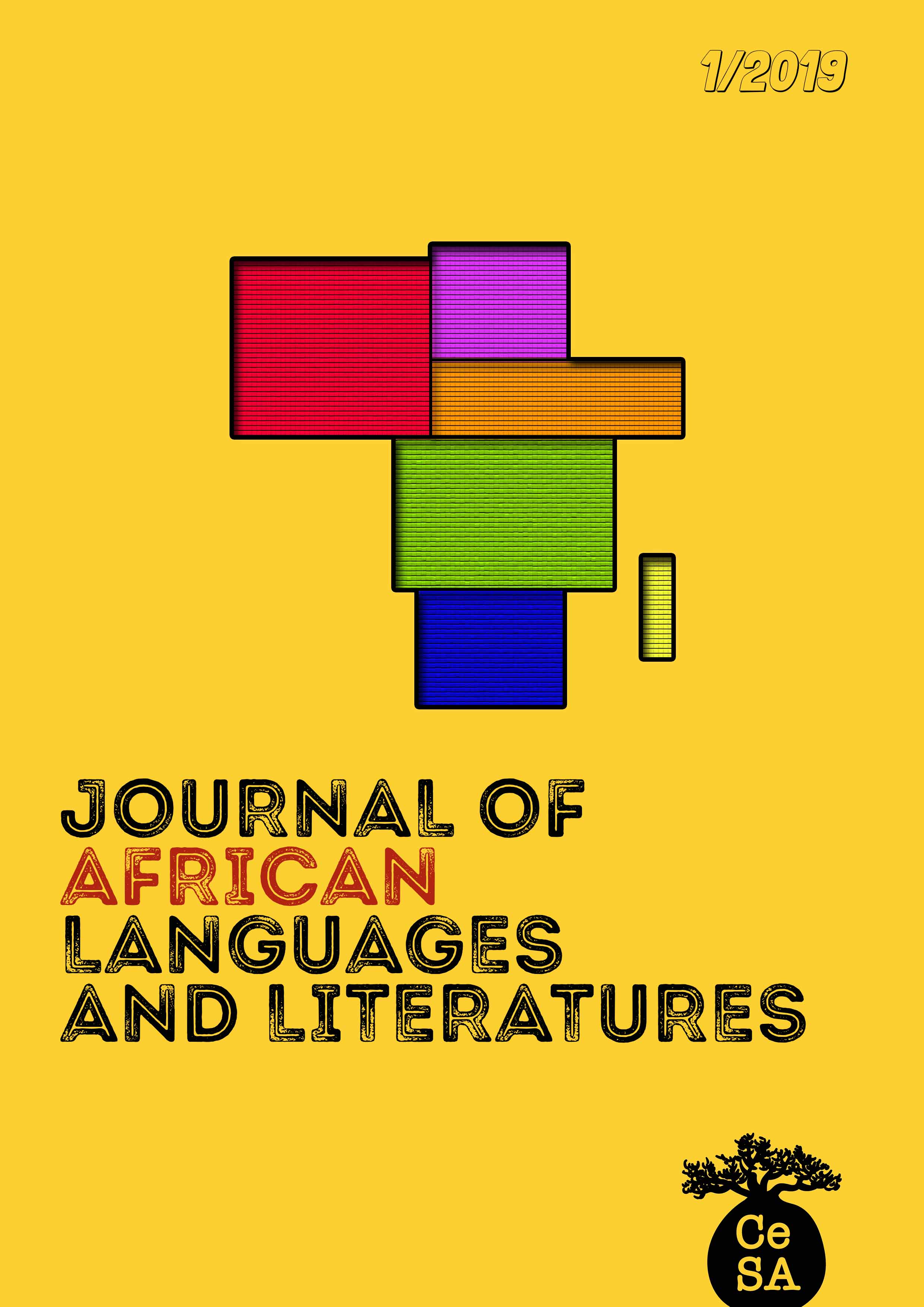 Journal of African Languages and Literatures (JALaLit) è una rivista internazionale con sistema di valutazione a doppio cieco pubblicata dal Centro di Studi sull'Africa (Dipartimento Asia, Africa e Mediterraneo, Università degli Studi di Napoli “L’Orientale”). JALaLit pubblica articoli, dati di ricerca sul campo, e note di discussione dedicate alla linguistica e alle letterature africane moderne e contemporanee.
Journal of African Languages and Literatures (JALaLit) è una rivista internazionale con sistema di valutazione a doppio cieco pubblicata dal Centro di Studi sull'Africa (Dipartimento Asia, Africa e Mediterraneo, Università degli Studi di Napoli “L’Orientale”). JALaLit pubblica articoli, dati di ricerca sul campo, e note di discussione dedicate alla linguistica e alle letterature africane moderne e contemporanee.

JOP. Journal of the Pancreas
JOP - Journal of the Pancreas è una rivista elettronica che pubblica manoscritti originali e recensioni sul pancreas esocrino ed endocrino.
JOP si concentra sull'intero spettro di aspetti della ghiandola pancreatica: normale funzione, eziologia, epidemiologia, prevenzione, genetica, patofisiologia, diagnosi, chirurgia e gestione medica di malattie tra cui il cancro del pancreas, malattie infiammatorie, diabete mellito, fibrosi cistica e altre patologie congenite.
Tutti gli articoli presenti in JOP sono in inglese.
Job è stato pubblicato dal CAB - Centro di Ateneo per le Biblioteche "Roberto Pettorico" dell'Università degli Studi di Napoli Federico II fino a maggio 2015.

OS. Opificio della Storia
OS. Opificio della Storia è un laboratorio di idee e di ricerche attraverso il quale si intende promuovere la centralità degli studi storici nelle pratiche di conoscenza, di trasmissione e di valorizzazione dei paesaggi della produzione.
La rivista è impegnata a dar voce a tutti gli studiosi interessati a difendere e a sostenere la cultura storica del lavoro e dei luoghi della produzione in tutte le loro declinazioni, economica e sociale, moderna e contemporanea, dell’architettura e dell’arte, in una prospettiva interdisciplinare costantemente aperta al mondo della conservazione, dell’archeologia, della geografia e della comunicazione.
OS accoglie studi storici e ricerche applicate sui sistemi produttivi, dagli ambienti silvo-pastorali all’agricoltura e all’industria, e sui paesaggi rurali e urbani, colti nella loro dimensione materiale e immateriale e nelle loro diverse articolazioni economiche, politiche, sociali, artistiche e territoriali.
OS. Opificio della Storia è una rivista pubblicata in Open Access ed è espressione dell'Associazione nazionale RESpro - Rete di storici per i paesaggi della produzione. OS è realizzata con il patrocionio dell'Università degli Studi della Campania Luigi Vanvitelli che afferisce alla piattaforma SHARE.

Pagine Inattuali
Pagine Inattuali è da oggi disponibile al seguente nuovo indirizzo web:
https://serena.sharepress.it/index.php/pagineinattuali
Il sito attuale sarà invece dismesso e non sarà più aggiornato.
Ti invitiamo a visitare e salvare il nuovo link per continuare a seguirci.
---
Pagine Inattuali è una rivista scientifica di filosofia e letteratura fondata nel 2012 che vuole ritagliarsi un piccolo spazio all’interno dell’affollato panorama dei periodici scientifici.
Cercando di forzare, con numeri tematici aperti a tutte le prospettive, gli angusti limiti che spesso, per comodità o convenzione, sono eretti tra le varie discipline, Pagine Inattuali desidera porsi come un soggetto libero da tutti quegli abusati meccanismi per cui una certa produzione di saggistica risulta spesso finalizzata al sostentamento acritico delle carriere universitarie.
Sulla base di tali premesse, Pagine Inattuali spera di poter diventare un’opportunità significativa per tutti gli autori e i lettori che condividano un progetto di questo tipo.
Pagine Inattuali è stata riconosciuta dall'ANVUR come rivista scientifica di fascia A per l'Area 11, settore 11/C5 (Storia della filosofia), e come rivista scientifica per l’Area 14 (Scienze politiche e sociali). Inoltre, è attualmente indicizzata in
Ed è presente nelle seguenti biblioteche:
- Internet Archive
- Archive-it
- Biblioteca nazionale centrale - Roma (RM)
- Biblioteca nazionale Vittorio Emanuele III - Napoli (NA)
- Biblioteca nazionale centrale - Firenze (FI)

Politics. Rivista di Studi Politici

RESEARCH TRENDS IN HUMANITIES Education & Philosophy
RTH è una rivista scientifica ANVUR di fascia A che pubblica l’innovazione sperimentale della ricerca pedagogica sulla relazione mente cervello educazione nelle neuroscienze educative e della ricerca filosofica interculturale e nella contaminazione con le arti.

Reti Medievali Rivista
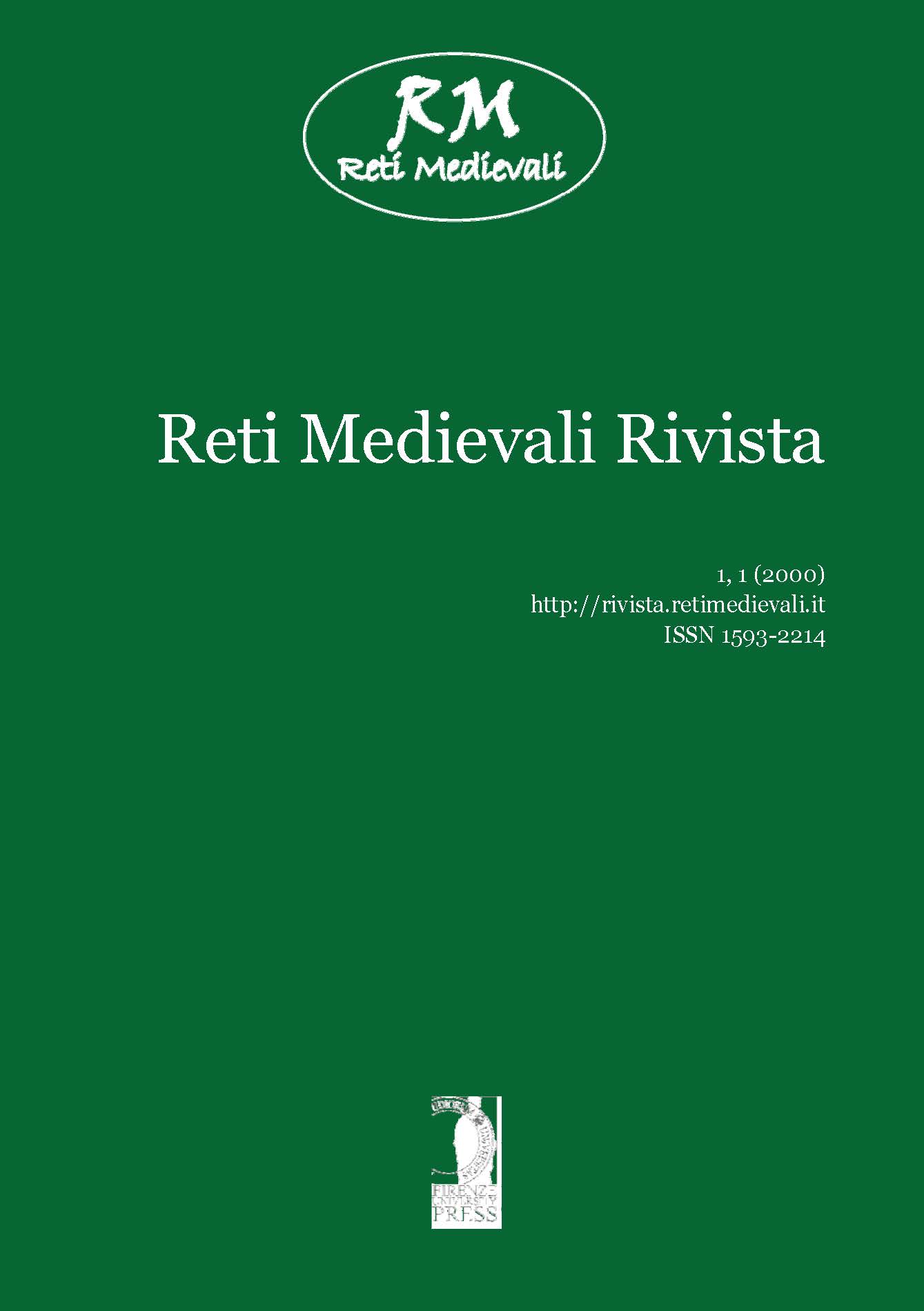 Il nuovo sito di RM Rivista è all'indirizzo: https://serena.sharepress.it/index.php/rm
Il nuovo sito di RM Rivista è all'indirizzo: https://serena.sharepress.it/index.php/rm
Reti Medievali Rivista è una iniziativa scientifica dedicata allo studio della civiltà medievale nelle sue diverse forme. È volta anche a sperimentare l'uso delle nuove tecnologie informatiche nelle pratiche di ricerca e di comunicazione del sapere.
Tutti i testi pubblicati in RM Rivista sono vagliati, secondo le modalità del "doppio cieco" (double blind peer review), da non meno di due lettori individuati in un'ampia cerchia internazionale di specialisti. I loro nomi sono pubblicati alla pagina, costantemente aggiornata: Referees; le loro valutazioni sono archiviate nell'area riservata.
L'Agenzia Nazionale di Valutazione del sistema Universitario e della Ricerca (ANVUR) ha collocato RM Rivista tra le riviste scientifiche di qualità più elevata (Fascia A) per 4 settori concorsuali dell'Area "11 - Scienze storiche, filosofiche, pedagogiche e psicologiche" e 20 settori dell'Area "10 - Scienze dell'antichita', filologico-letterarie e storico-artistiche".
RM Rivista è presente nei cataloghi di centinaia di biblioteche nel mondo e nelle principali banche dati di periodici, tra cui Arts and Humanities Citation Index® e Current Contents®/Arts & Humanities di Thomson Reuters (già ISI) e SCOPUS di Elsevier; è stata inoltre inclusa nell'indice ERIH PLUS di European Science Foundation.
Reti Medievali è membro di COPE, il Committee on Publication Ethics.
 |

Rivista del Dizionario Etimologico e Storico del Napoletano
La «Rivista del Dizionario Etimologico e Storico del Napoletano» (RiDESN) è una pubblicazione semestrale, nata dall’esperienza maturata nell’officina del Dizionario Etimologico e Storico del Napoletano (DESN), diretto da Nicola De Blasi e Francesco Montuori. Accogliendo contributi di tipo linguistico, filologico e storico-letterario, la «RiDESN» si propone nella prima parte (sezioni 1-3) come polo di studi sulle varietà italoromanze, con particolare attenzione a quelle centromeridionali. La seconda parte (sezioni 4-5) è monografica e ospita aggiornamenti sui lavori del DESN.
Sezioni e rubriche
1. Saggi – Studi linguistici di taglio storico, dialettologico e lessicografico.
2. Autori e testi – Nuove acquisizioni sulla storia interna ed esterna del napoletano e di varietà linguistiche italoromanze: studi su opere e autori; edizioni di testi letterari e non letterari.
3. Discussioni e cronache – Recensioni e schede bibliografiche; note lessicali; riflessioni su temi di attualità rilevanti per la linguistica italiana.
4. Studi dal laboratorio del DESN – Voci, repertori e saggi per il DESN.
5. Indice delle voci del DESN – Aggiornamenti sulle parole del DESN di recente pubblicazione.

Schola Salernitana - Annali

Ms 25, f. 181v (aut. n. 628/15 del 05/10/2016)
Schola Salernitana - Annali è una rivista scientifica fondata nel 1996 su iniziativa del Dipartimento di Latinità e Medioevo dell’Università di Salerno poi confluito nel Dipartimento di Scienze del Patrimonio Culturale (DISPAC). Accoglie contributi scientifici relativi prevalentemente alla storia e alla storiografia del Medioevo meridionale nelle sue molteplici declinazioni. In una prospettiva multidisciplinare trovano spazio anche studi di carattere filosofico, archeologico, antropologico, di storia della cultura e della tradizione testuale.
Gli articoli, sottoposti a verifica secondo le modalità del "doppio cieco", sono pubblicati ad "Accesso aperto" con licenza Creative Commons Attribuzione 4.0 Internazionale.
Schola Salernitana - Annali è inserita dall'Agenzia Nazionale di Valutazione del sistema Universitario e della Ricerca (ANVUR) tra le riviste scientifiche le aree "10 - Scienze dell'antichità, filologico-letterarie e storico-artistiche" e "11 - Scienze storiche, filosofiche, pedagogiche e psicologiche"

Scrineum

Scrineum è una rivista on-line ad accesso aperto fondata nel 2003 da un gruppo di studiosi di Diplomatica, Paleografia e Codicologia di diverse Università italiane. La rivista ha come interesse principale la storia della cultura scritta, in particolare la storia della documentazione, del libro e della scrittura dall’antichità al basso medioevo greco e latino, ma è aperta anche a tematiche analoghe relative all’età moderna e a culture non europee.
Scrineum pubblica contributi originali nelle principali lingue della comunicazione scientifica; tutti i lavori presentati alla rivista sono sottoposti in forma anonima a un processo di revisione da parte di esperti a loro volta anonimi (double-blind peer review). La rivista è stata collocata dall’ANVUR (Agenzia Nazionale di Valutazione del Sistema Universitario e della Ricerca) in ‘fascia A’ per le aree disciplinari 11/A4 (Scienze del libro e del documento e scienze storico-religiose), 10/D4 (Filologia classica e tardoantica) e 10/E1 (Filologie e letterature medio-latina e romanze). È aperta alle proposte sia di studiosi affermati sia di ricercatori a inizio carriera.
Direttrice responsabile: Laura Pani, Università di Udine, Italy

Scrineum Rivista is indexed in:
 |
 |
 |
 |
 |

Sdvig/Shift. Transnational Russian Studies
La rivista intende colmare una lacuna nella slavistica italiana, l’assenza di una rivista dedicata alla letteratura e cultura russa e russofona, soprattutto in un momento storico, politico e culturale complesso come quello attuale. Oggi gli studi sulla letteratura e cultura russa (e russofona) hanno bisogno di liberarsi dall’identificazione con uno stato aggressore, è perciò fondamentale preservare una tradizione che ha sempre svolto un ruolo cruciale nello sviluppo artistico, estetico e teorico globale.
Il titolo della rivista rimanda al termine di origine futurista, e poi dei formalisti, “sdvig”, slittamento. Nella definizione di A. Hansen-Löve si tratta della “incommensurabilità universale, della contraddizione posta nella costruzione del mondo, che non solo ‘viene rappresentata’ in modo passivo nell’opera d’arte, ma che organizza in modo dinamico l’opera stessa”. Lo slittamento assume diverse connotazioni a seconda della direzione di indagine: lo slittamento semantico, che deriva dallo straniamento, nel testo letterario e poetico è alla base della creazione del senso; dal punto di vista diacronico lo slittamento segna il mutamento del paradigma interpretativo e creativo.
Rigore metodologico e filologico, coniugato con un approccio di tipo semiotico, che include anche le nuove direzioni delle Digital Humanities, caratterizzano la rivista e il gruppo internazionale di studiosi, che è stato invitato a fondarla. La gamma di tematiche che si intende esplorare riguarda la cultura russa (e russofona) in ambito transnazionale, nel suo nesso con le altre culture del mondo, il loro pluralismo e la loro varietà intrinseca, le questioni di world literature, i metodi esatti nello studio della letteratura, l’eredità del formalismo e dello strutturalismo, le relazioni tra la letteratura e le altre discipline artistiche, solo per citarne alcune.

Rivista per la storia degli ebrei nell’Italia meridionale
Sefer yuḥasin ספר יוחסין | Review for the History of the Jews in South Italy
Rivista per la storia degli ebrei nell’Italia meridionale
Rivista per la storia degli ebrei nell’Italia meridionale
Fondata nel 1985 da Cesare Colafemmina
Diretta da Giancarlo Lacerenza
*
Il Sefer yuḥasin è una rivista scientifica dedicata alla storia e alla cultura ebraica dell’Italia meridionale, intesa nei suoi rapporti con l’area euro-mediterranea e orientale, per il periodo compreso fra l'antichità e l'età moderna. Ospita articoli e note di storia, archeologia, filologia, edizioni e traduzioni di testi e documenti inediti.
La rivista, a periodicità annuale, è edita dal Centro di Studi Ebraici e dal Dipartimento Asia, Africa e Mediterraneo dell'Università degli studi di Napoli "L'Orientale" ed è pubblicata, anche in formato cartaceo, dalla UniorPress.
Il Sefer yuḥasin è peer-reviewed e si avvale di un comitato scientifico internazionale.
Direttore
Giancarlo Lacerenza, Università di Napoli “L’Orientale”
Comitato editoriale
Gemma T. Colesanti (Istituto di Scienze per il Patrimonio Culturale, CNR, Napoli)
Anna Esposito (Università La Sapienza, Roma)
Dorota Hartman (Università L’Orientale, Napoli)
Rodrigo Laham Cohen (Universidad de Buenos Aires)
Antonio Rollo (Università L’Orientale, Napoli)
Luigi Russo (Università Europea, Roma)
Eliodoro Savino (Università Federico II, Napoli)
Comitato scientifico
Stefano Arieti (Università di Bologna)
Roberto Bonfil (Hebrew University, Jerusalem)
Steven Bowman (University of Cincinnati)
Riccardo Contini (Università L’Orientale, Napoli)
Abraham David (Hebrew University, Jerusalem)
Vera von Falkenhausen (Università Tor Vergata, Roma)
Simonetta Graziani (Università L’Orientale, Napoli)
Johannes Heil (Hochschule für Jüdische Studien Heidelberg)
Fabrizio Lelli (Università del Salento, Lecce)
Giuseppe Mandalà (Centro de Ciencias Humanas y Sociales, CSIC, Madrid)
Laura Minervini (Università Federico II, Napoli)
David Noy (University of Wales)
Stefano Palmieri (Istituto Italiano per gli Studi Storici, Napoli)
Mauro Perani (Università di Bologna)
Leonard Rutgers (Universiteit Utrecht)
Giuliano Tamani (Università Ca’ Foscari, Venezia)
Luigi Tartaglia (Università L’Orientale, Napoli)
Ilana Wartenberg (The Goldstein-Goren Diaspora Research center, Tel Aviv University)
Nadia Zeldes (Hebrew University, Jerusalem)
Comitato di redazione
Diana Joyce de Falco
Jessica Dello Russo
Ivo Fasiori
*
Pubblicazione annuale - Reg. Tribunale di Napoli n. 41 del 5/10/2012
Direttore responsabile: Michele Bernardini
Rivista di Fascia A ANVUR per il settore concorsuale 10N1

SigMa - Rivista di Letterature comparate, Teatro e Arti dello spettacolo
SigMa Rivista di Letterature comparate, Teatro e Arti dello spettacolo è la rivista scientifica internazionale dell’Associazione Sigismondo Malatesta pubblicata con periodicità annuale. Si distingue per l’adozione di una prospettiva comparatistica e interdisciplinare. Accoglie studi incentrati sulla letteratura, il teatro, il cinema e le arti visive, considerati nella loro dimensione diacronica e sincronica; privilegia il dialogo inter artes e il confronto tra modelli teorici. Promuove il dibattito scientifico ai livelli più elevati, a partire dalla riflessione sulle tendenze teoriche e metodologiche emergenti, delle quali misura prospettive e possibilità applicative, senza trascurarne le relazioni con i modelli della tradizione.

Studi Finno-Ugrici, n.s.
Studi Finno-Ugrici (SFU), ISSN 1826-753X, è rivista del Dipartimento di Studi Letterari, Linguistici e Comparati dell’Università di Napoli L’Orientale, ed è inclusa dall’ANVUR nell’elenco delle riviste scientifiche di Classe A per tutti i settori concorsuali dell’Area 10. Nata nel 1995 con radici nella tradizione dell’editoria scientifica promossa da Nullo Minissi negli anni Settanta e Ottanta, dal 2021 SFU viene pubblicata dalla casa editrice UniorPress anche in formato digitale, nella modalità del Diamond Open Access. SFU con questa nuova modalità si propone come aggregatore, di immediata disponibilità a livello internazionale, dei saperi relativi al patrimonio linguistico, letterario, storico, culturale e artistico di cui le civiltà ugrofinniche sono le produttrici e i veicoli, dentro e fuori dei confini nazionali di loro riferimento. In particolare, SFU intende sollecitare la ricerca in ottica comparativa, sia nell’ambito degli studi linguistici, filologico-letterari, storici, storico-culturali e storico-artistici italiani e ugrofinnici, sia in quello, finora scarsamente frequentato, degli studi comparati intrinseci alle civiltà ugrofinniche.
Direzione e Comitati
Direzione scientifica
Anna De Meo (Università di Napoli L’Orientale)
Beatrice Tottossy (Università di Studi di Firenze)
Comitato scientifico
Rigina Ajanki (University of Helsinki)
Eszter Balázs (Kodolányi János University)
István Berszán (Babeș-Bolyai University)
Viola Čapková (University of Turku)
Marko Čudić (University of Belgrade)
László Csorba (University of Eötvös Loránd, Budapest)
Mónika Dánél (University of Eötvös Loránd, Budapest)
Gábor Dobó (Kassák Museum, Budapest)
László Gyapay (University of Miskolc)
Ilmari Tuomas Ivaska (University of Turku)
Gábor Kiss Farkas (University of Eötvös Loránd, Budapest)
Andrea Kollár (University of Szeged)
Eneken Laanes (University of Tallinn)
Orsolya Maróti (University of Eötvös Loránd, Budapest)
Sándor Maticsák (University of Debrecen)
Anna Menyhért (Budapest University of Jewish Studies)
István Monok (Library and Information Centre of the Hungarian Academy of Sciences)
Daniele Monticelli (University of Tallinn)
Orsolya Nádor (Károli Gáspár University of the Reformed Church, Budapest)
László Pete (University of Debrecen)
Ülar Ploom (Università di Tallin)
Magdalena Roguska-Németh (University of Warsaw)
Andrea Seidler (University of Vienna)
Éva Toldi (University of Novi Sad)
György Tverdota (University of Eötvös Loránd, Budapest)
Comitato di Redazione
Stefano Bottoni (Università degli Studi di Firenze)
Lena Dal Pozzo (Università degli Studi di Firenze)
Andrea De Carlo (Università di Napoli L’Orientale)
Lucia di Pace (Università di Napoli L’Orientale)
Giorgia Ferrari (Alma Mater Studiorum – Università di Bologna)
Andrea Pap (University of Eötvös Loránd, Budapest)
Judit Papp, coordinamento (Università di Napoli L’Orientale)
Antonio Parente (Turku)
Edit Rózsavölgyi (Sapienza Università di Roma)
Mariarosaria Sciglitano (Napoli)
Anna Sidó (Petőfi Literary Museum)
Irene Sorrentino (Napoli)
Claudia Tatasciore (Università degli Studi di Firenze)
Gianluca Volpi (Università degli Studi di Udine)
Caporedattore tecnico
Alberto Baldi (Università degli Studi di Firenze)

Tema. Journal of Land Use, Mobility and Environment
Tema - Journal of Land Use, Mobility and Environment propone ricerche, sperimentazioni e contributi che affrontano con un approccio unitario i temi dell’urbanistica e della mobilità. TeMA ha ottenuto Sparc Europe Seal, la certificazione di conformità a standard di qualità, rilasciata alle riviste scientifiche ad accesso aperto dalla Scholarly Publishing and Academic Resources Coalition (SPARC Europe) e dalla Directory of Open Access Journals(DOAJ)

Territorio della Ricerca su Insediamenti e Ambiente. Rivista internazionale di cultura urbanistica
TRIA è una rivista internazionale a circuito internazionale, incentrata sulle tematiche della pianificazione e della progettazione urbanistica spazianti nel più ampio contesto delle scienze della terra e di quelle sociali interessanti la processualità insediativa.
La rivista propone sperimentazioni progettuali e pianificatorie maturate all’interno delle strutture universitarie e nelle istituzioni amministrative, deputate al governo della conservazione e delle trasformazioni del territorio.
La rivista è stata accreditata dall'ANVUR nell'elenco delle riviste di classe A dal 2018

UPLanD - Journal of Urban Planning, Landscape & environmental Design
- disseminate meaningful, responsible, accurate and independent contributions in the field of urban planning, landscape and environmental design, which are supported by research and original experiments carried out both in scientific environments and practice;
- provide an international comparison tool for research work being done on the subject of the sustainable governance of the built environment, in view of the advancement of knowledge, methods and tools in comparison with the global scientific community;
- promote the dissemination of research and experimentation, whose results and effects are of interest due to their social, economic, environmental, cultural and ecological impact;
- promote the recognition of scientific contributions according to the criteria for the evaluation of research in the academic field, as defined internationally;
- offer young researchers a user friendly environment for the promotion and dissemination of products in the international scientific community and for the relevant measurement of their impact;
- promote the sustainable governance of the territory as a central and essential strategy for the growth of the collective well-being;
- promote encounters / comparisons among scientific researchers, the profession, producers and decision makers.
Call for Papers UPLanD 1/2017 (English , Italian)
Issue 1/2017 ...coming soon

UPLanD is not asking publication fees to authors but, in order to keep an international high-quality standard, all proposed papers are going through a rigorous peer review process.



